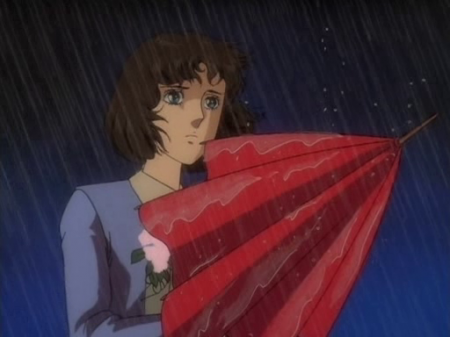Ask John: What Makes Oniisama E… so Popular?

Question:
As we all know by now, Dear Brother/Oniisama e was successfully crowdfunded at Anime Sols with time to spare. What makes its success unusual, besides its age, is that up until the Viki stream it was primarily known to North American anime fans through fansubs. However, what also makes the situation very unique is that said viewers were willing to support an official release of the series. There are a lot of so-called fans who flaked out on official releases of other newer and flashier shoujo anime titles such as Sailor Moon and Kodocha. But Dear Brother was not a victim of that fickle behavior.
So I guess that makes me wonder. What makes it a “keeper” to those buyers? I’m not even sure if Right Stuf’s release of Rose of Versailles, which has the same author and director, generated as much enthusiasm as Sols’ crowdfunder for Oniisama e. Is it a nostalgia thing? Did it just come in during an opportune time when North American anime choices were extremely limited? Did the characters just connect with U.S. viewers more than other early 90s anime? Did it just blend in with the whole grunge trend of that time period? Was it a reaction to mediocre self-serving teen “dramas” like My So-Called Life and the original 90210? In summation, in your eyes, what is the mystique behind Dear Brother’s appeal?
Answer:
It’s with great admiration and affection that I refer to Oniisama E… as emotional torture porn. The (highly limited) success of the official American release of Dear Brother is primarily attributable to one factor. The show is one of the few anime that aims to be an emotional wringer. The 39-episode series is a dense, gripping, angst-ridden and Gothic serial revolving around the adolescent turmoils that affect protagonist Nanako. Relatively few anime ever attempt to delve so deeply into the unsettling, emotionally devastating struggles of adolescence. The 2008 Mouryou no Hako and, to some surprise, the 2012 Black Rock Shooter TV series devote some focus on the principle. Evangelion dealt heavily with the same emotional struggles that Oniisama E… did, but in a wildly different context and with a more abstract approach. Madoka Magica likewise dared to dive into the deep end of churning, chaotic teen anxiety, but again, with a very different context than Dear Brother. Yet both Evangelion and Madoka Magica became massively successful. Intense, provocative dramas tend to resonate with teen viewers because they resonate with the ominous and brooding emotions and relationships that naturally accompany adolescence. These rare shows then create strong emotive and nostalgic bonds with viewers and become shows that are respected for their intense, incisive emotional morbidity.
Despite having many technical similarities to Oniisama E…, Rose of Versailles is a historical drama that illustrates the struggles of royalty 300 years ago. While the series may provide interesting, compelling drama, it’s not nearly as relateable to individual viewers’ own routine lives as Oniisama E… happens to be. Shoujo anime like Sailor Moon and Kodomo no Omocha are likewise entertainment programs that deal with supernatural and distant conflicts like celebrity and paternity, not everyday intimate concerns that average viewers immediately relate to. Oniisama E… is for modern viewers the equivalent to Romantic era literature like Emily Bronte’s Wuthering Heights and Jane Austen’s Sense & Sensibility were to 19th century readers. Oniisama E… is a modern literary classic filled with turbulent passions and provocative, shameful transgressions of ethics. But just as few mainstream readers today willingly read Wuthering Heights or Sense & Sensibility, only a mere 272 people committed to purchasing the domestic DVD release of Dear Brother. The lasting, captivating appeal of Oniisama E… is its brutally gut-wrenching eagerness to emotionally crush its bright, optimistic protagonist with bullying and domestic violence, drug abuse, divorce, suicide, disease, and ostracized lesbian romance. Very few anime series are so grim while still seeming so elegant, beautiful, and literate. Dear Brother is a difficult, challenging show to stomach, and it’s precisely that intensity that inspires respect for the show. Anime fans that respect the powerful potential of anime as a literate storytelling medium, fans who appreciate anime that strives to push the envelope of juvenile storytelling into an elevated realm of provocative, challenging fine literature, respect Oniisama E… and want to own a permanent, archival collection of the series because it’s one of the substantial landmark productions in the history of the anime medium. At least 272 of them seem to think this way.


